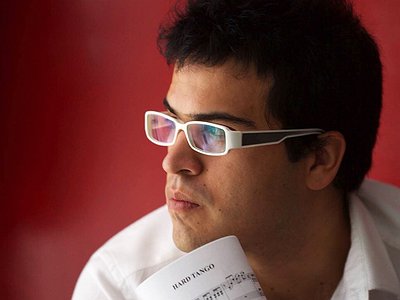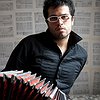Part 2
How do you make use of technology? In terms of the feedback mechanism between technology and creativity, what do humans excel at, what do machines excel at?
I like writing music on my laptop because there is so much software for notating classical music. People think it is faster and easier, but it’s really not. While some things can be done faster, others do take longer. But it is safer and looks better. Humans excel at creating and inspiring. I use the technology (my computer) to serve my needs. If I want to send a PDF or a recording of a piece of music that I’m composing in my Manhattan apartment to my colleague in Tokyo, I can do it in one second. Isn’t that amazing?
Collaborations can take on many forms. What role do they play in your approach and what are your preferred ways of engaging with other creatives, including the artists performing your work?
Everything is about collaborating; my music would not exist without my incredibly gifted colleagues. When they play my music it comes alive. They are like family and it is a very special process. Sometimes they will commission a piece out of love for our music and they want to encourage me to keep writing more. The people who commission pieces play such a significant role in the process of music-making and they are the reason I get to compose certain works. For instance, Michael Guttman was very specific in his requirements—he wanted a violin and bandoneon concerto. I wouldn’t have written the work otherwise, and because of his commission, I have created the first-ever double concerto with these two instruments. I am currently finishing a clarinet and bandoneon double concerto for Seunghee Lee, and next are commissions for Kyung Sun Lee and Eric Silberger. These are really incredible soloists who support my career by commissioning new music. What more could a composer ask for?!
How is writing the music and having it performed live connected? What do you achieve and draw from each experience personally? How do you see the relationship between improvisation and composition in this regard?
When I finish writing a piece it’s really a special feeling, maybe one of the most beautiful sensations I experience, and I mean it. It’s something incredible. Your life, your time, your feelings, all come through completely naked; you expose yourself and your soul is out there on full display. When I perform the music, it feels like I can finally enjoy the fulfilment of my vision and share my voice with the audience. Once I have completed composing a new work, I need to feel 100% satisfied with my creation.
Composing is sometimes improvising, too. You try out things that don’t yet exist. Most of the time I write music that I hear in my head, but there have been times when I am improvising and I think, “Oh, I actually love this, I have to write it down.” For example, in my piece Milongon the main theme evolved from such an improvisation. Of course after I wrote that “one bar theme,” I sat down and worked for a long time on the instrumentation, especially the rhythm and counterpoint.
Time is a variable only seldom discussed within the context of contemporary composition. Can you tell me a bit about your perspective on time in relation to a composition and what role it plays in your work?
Music is the art of combining sound and tempo. Time plays a very important role, of course. Time is absolutely fundamental in terms of note duration, expression and rhythm. You often need to let the musical idea rest, not force it. Sometimes it's good to wait until you feel it is the right moment. For example, the climax of the 3rd movements of the Double Concerto No. 1 for Violin and Bandoneón is something I wrote as a 16-year-old teenager on my electric guitar. So it’s been in my mind for 19 years and I ended up using it for a string orchestra! When I finished composing it I felt, wow, I’m glad I waited all these years.
How do you see the relationship between the 'sound' aspects of music and the 'composition' aspects? How do you work with sound and timbre to meet certain production ideas and in which way can certain sounds already take on compositional qualities?
When the musical idea arises in my mind it comes with the sound it’s meant to be. Once the composition is finished, I sometimes arrange it for different sounds (instruments). So I choose the sound depending on the colour and feeling I want for certain music.
Our sense of hearing shares intriguing connections to other senses. From your experience, what are some of the most inspiring overlaps between different senses - and what do they tell us about the way our senses work? What happens to sound at its outermost borders?
To me, hearing is highly connected to a sense of familiarity. A musical piece can remind me of a situation or experience I had when I listened to the music at another time. Sometimes I hear music that I first listened to 20 years ago, and it brings to mind the exact same feelings I had back then. It also affects my sense of humour and many other feelings. So I could say that music fuels feelings which encompass all my senses.
Art can be a purpose in its own right, but it can also directly feed back into everyday life, take on a social and political role and lead to more engagement. Can you describe your approach to art and being an artist?
I think music saved my life. And I have to return the favour by creating music. It’s actually more than “I have to,” it’s “I need to.” I need to create music, to express the music that’s in my head. It’s as if the music is asking to come out and I must write it down.
It is remarkable, in a way, that we have arrived in the 21st century with the basic concept of music still intact. Do you have a vision of music, an idea of what music could be beyond its current form?
I don’t know. Music has a life of its own and has been present since cavemen started banging sticks on different objects and using their voices to express feelings. It would be presumptuous for me (or anyone else) to try to guess where this irrepressible force of nature will be heading next.






